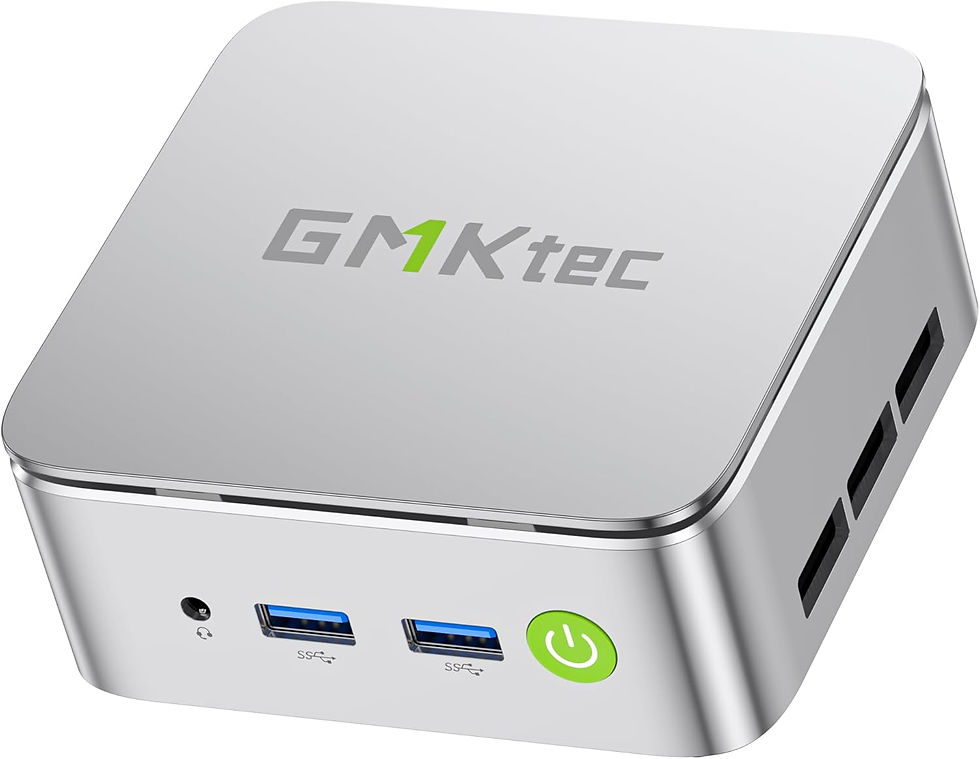Desktop Mini PC
Thinking Small: A Buyer's Guide to Mini PC Desktops for Home Use
In today's tech-driven world, our need for powerful computing often clashes with the limited space available in our homes. Traditional desktop computers, while offering undeniable performance, can be bulky and cumbersome. This is where the unsung hero of the PC world steps in: the mini PC.
What is a Mini PC?
A mini PC, also known as a mini desktop computer or a compact PC, is essentially a fully functional computer shrunk down to a size significantly smaller than a traditional desktop tower. Imagine a device roughly the size of a textbook, yet capable of handling a surprising array of tasks.
Why Choose a Mini PC for Your Home?
Mini PCs offer a compelling set of advantages for home users:
-
Space Saving: Their compact size makes them ideal for cramped workspaces, home offices, or even living room entertainment centers. No more struggling to find desk real estate!
-
Silent Operation: Many mini PCs utilize low-power processors that generate minimal heat, eliminating the need for noisy fans. This translates to a peaceful computing experience.
-
Energy Efficient: The low-power design of mini PCs also translates to lower energy consumption, making them an eco-friendly choice for the environmentally conscious user.
-
Affordability: Mini PCs are generally more affordable than their full-sized counterparts, especially when you consider the cost of a separate monitor, keyboard, and mouse.
-
Versatility: Don't be fooled by their size. Mini PCs come equipped with a variety of ports and can handle a surprising range of tasks, from basic web browsing and office work to multimedia streaming and even light gaming.
Choosing the Right Mini PC for Your Needs
With so many mini PC options available, selecting the right one for your home needs can feel overwhelming. Here are some key factors to consider:
-
Processor (CPU): The CPU is the brain of the computer, and its power will determine how well the mini PC handles your everyday tasks. For basic tasks like web browsing and email, an Intel Celeron or AMD Athlon processor might suffice. For more demanding applications like photo editing or video streaming, consider an Intel Core i3 or AMD Ryzen 3 processor or higher.
-
Memory (RAM): RAM allows the computer to run multiple programs simultaneously. For basic use, 4GB of RAM is sufficient, we recommend not lower than 8GB in the year 2024. If you plan on multitasking or using memory-intensive applications, opt for 16GB or even 32GB of RAM.
-
Storage (SSD vs. HDD): Solid State Drives (SSDs) offer significantly faster boot times and application loading compared to traditional Hard Disk Drives (HDDs). However, SSDs tend to be more expensive for the same storage capacity. If budget is a concern, consider a mini PC with a smaller SSD for the operating system and frequently used programs, and an external HDD for mass storage. Our Mini PC's mostly come with SSD m.2 drives and an optional bay to add a 2,5" SSD drive.
-
Connectivity: Ensure the mini PC has the ports you need to connect to your peripherals. Most mini PCs will have HDMI for connecting to a monitor, USB ports for connecting keyboards, mice, and external storage drives, and an Ethernet port for wired internet. Look for options with Wi-Fi and Bluetooth for wireless connectivity.
-
Operating System (OS): Most mini PCs come pre-installed with Windows 10/11, although some offer Chrome OS or even Linux options. Choose the OS you're most comfortable with.
Beyond the Basics: Upgradability and Customization
While some mini PCs are closed systems with limited upgrade options, others allow you to expand RAM or storage. You won't really be able to upgrade the processor/motherboard or add a large Gaming graphics card, but this is why these systems are cheaper and so small in size. If future-proofing your purchase is important, consider a mini PC that offers some level of upgradability.
Bonus Round:
We find the best advantage of a mini pc is that it can be mobile. Simply take it with you on holiday, to work, or a friends house for a movie night. It just needs a screen which todays TV's with HDMI offer and you can use a big screen monitor at the office.
The Final Verdict
Mini PCs offer a compelling alternative to traditional desktops for home users who value space efficiency, quiet operation, and affordability. By considering your needs and budget, you can find the perfect mini PC to seamlessly integrate into your home computing environment.



















